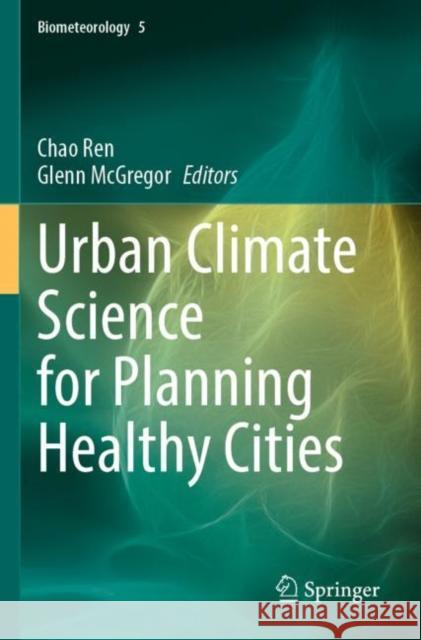Urban Climate Science for Planning Healthy Cities » książka
Urban Climate Science for Planning Healthy Cities
ISBN-13: 9783030876005 / Angielski / Miękka / 2022 / 406 str.
Urban Climate Science for Planning Healthy Cities
ISBN-13: 9783030876005 / Angielski / Miękka / 2022 / 406 str.
(netto: 536,72 VAT: 5%)
Najniższa cena z 30 dni: 539,74
ok. 16-18 dni roboczych.
Darmowa dostawa!
This volume demonstrates how urban climate science can provide valuable information for planning healthy cities. The book illustrates the idea of "Science in Time, Science in Place" by providing worldwide case-based urban climatic planning applications for a variety of regions and countries, utilizing relevant climatic-spatial planning experiences to address local climatic and environmental health issues. Comprised of three major sections entitled"The Rise of Mega-cities and the Concept of Climate Resilience and Healthy Living," "Urban Climate Science in Action," and "Future Challenges and the Way Forward,"the book argues for the recognition of climate as a key element of healthy cities. Topics covered include: urban resilience in a climate context, climate responsive planning and urban climate interventions to achieve healthy cities, climate extremes, public health impact, urban climate-related health risk information, urban design and planning, and governance and management of sustainable urban development. The book will appeal to an international audience of practicing planners and designers, public health and built environment professionals, social scientists, researchers in epidemiology, climatology and biometeorology, and international to city scale policy makers.Chapter “Manchester: The Role of Urban Domestic Gardens in Climate Adaptation and Resilience” is available open access under a Creative Commons Attribution 4.0 International License via link.springer.com.
This volume demonstrates how urban climate science can provide valuable information for planning healthy cities. The book illustrates the idea of "Science in Time, Science in Place" by providing worldwide case-based urban climatic planning applications for a variety of regions and countries, utilizing relevant climatic-spatial planning experiences to address local climatic and environmental health issues. Comprised of three major sections entitled "The Rise of Mega-cities and the Concept of Climate Resilience and Healthy Living," "Urban Climate Science in Action," and "Future Challenges and the Way Forward," the book argues for the recognition of climate as a key element of healthy cities. Topics covered include: urban resilience in a climate context, climate responsive planning and urban climate interventions to achieve healthy cities, climate extremes, public health impact, urban climate-related health risk information, urban design and planning, and governance and management of sustainable urban development. The book will appeal to an international audience of practicing planners and designers, public health and built environment professionals, social scientists, researchers in epidemiology, climatology and biometeorology, and international to city scale policy makers. Chapter “Manchester: The Role of Urban Domestic Gardens in Climate Adaptation and Resilience” is available open access under a Creative Commons Attribution 4.0 International License via link.springer.com.











